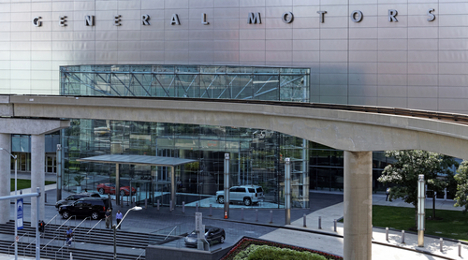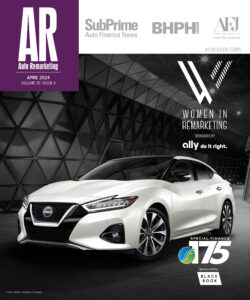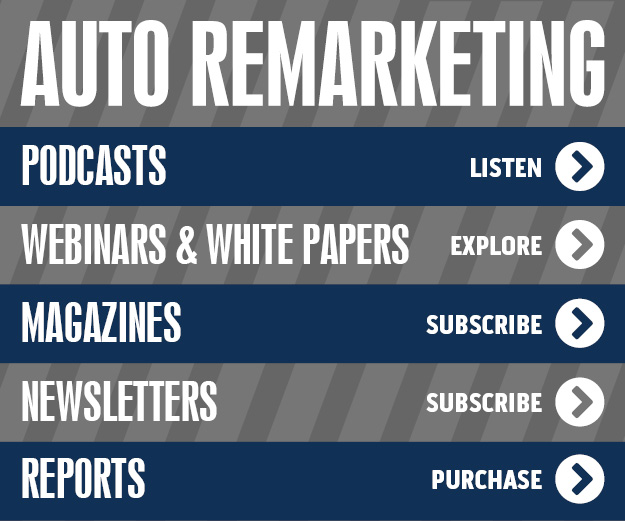GM ride-sharing initiatives unite under single brand: Maven

Various areas around the world, including college campuses, cities, residential areas, and peer-to-peer platforms have already or are in the works to be affected by General Motors’ vehicle-sharing initiatives. On Thursday, these initiatives united under one new GM brand: Maven.
According to GM, Maven’s mission is to give customers access to highly personalized, on-demand mobility services. Globally, the Maven team has over 40 employees with experience in the connected-car technology industry as well as ride- and car-sharing experts from Google, Zipcar and Sidecar.
“GM is at the forefront of redefining the future of personal mobility,” said Dan Ammann, GM’s president. “With the launch of our car-sharing service through Maven, the strategic alliance with ride-sharing company Lyft, and building on our decades of leadership in vehicle connectivity through OnStar, we are uniquely positioned to provide the high level of personalized mobility services our customers expect today and in the future.”
Here’s a breakdown of Maven’s expanded global offerings, as listed by GM in its news release:
City: Maven is announcing that it is offering its car-sharing program to more than 100,000 people in Ann Arbor, Mich., initially focusing on serving faculty and students at the University of Michigan.GM vehicles will be available initially at 21 parking spots across the city.
- Additional city-based programs will launch in major U.S. metropolitan areas later this year.
- Maven customers will experience seamless smartphone and keyless integration with the vehicle. Maven customers use its app to search for and reserve a vehicle by location or car type and unlock the vehicle with their smartphone. The app also enables remote functions such as starting, heating or cooling and more. Customers can bring their digital lives into the vehicle through Apple CarPlay, Android Auto, OnStar, SiriusXM radio and 4GLTE wireless. Each vehicle will provide an ownership-like experience with the convenience of car-sharing.
- Maven pricing is simple and transparent and includes insurance and fuel.
- As Maven grows, the team will use innovative ways of connecting personally with customers. Ann Arbor Maven users will have direct access to Maven leadership and core team members via the messaging application WhatsApp to share their experiences, ideas and thoughts with the team as they help shape the Maven service.
Residential: In the first quarter of 2016, Maven will launch car-sharing services for Chicago residents in partnership with Magellan Development Group. Maven is also expanding its existing residential program in New York City (previously called Let’s Drive NYC) with Stonehenge Partners giving users on-demand access to vehicles and preferred parking options. Both programs combined will offer service to more than 5,000 residents.
Peer-to-Peer: Existing global initiatives include peer-to-peer car-sharing through the CarUnity market place in Germany. Nearly 10,000 users have signed up in Frankfurt and Berlin since mid-2015.
Campus: Various programs are running on GM campuses in the U.S., Germany and China to refine and test future Maven commercial offerings.
Karl Brauer, senior analyst at Kelley Blue Book, compared today’s automotive business environment to the early days of commercial Internet.
“The personal transportation industry in 2016 is feeling a lot like the Internet world of 1999,” Brauer said. “There's a massive collision occurring between start-ups and established brands, all of them jockeying for position in an uncertain world. The Maven launch will give GM broader reach in this dynamic atmosphere, but nobody knows which of these alternative transportation systems holds the greatest long-term potential. This is why we're seeing a shotgun approach coming from multiple automakers.”
Another KBB analyst, Jack Nerad, also the company’s executive editorial director, believes this is not only a learning experience but also a solid marketing opportunity for GM.
“While there is some debate over how important ride-sharing services will be in the future, there is no doubt that the top global car companies want to have exposure in the space and gain learnings from early adopters. A pilot program like GM’s Maven can not only provide those learnings but can also be a marketing opportunity, exposing GM vehicles to groups that might not otherwise consider them.”

 View The Latest Edition
View The Latest Edition

